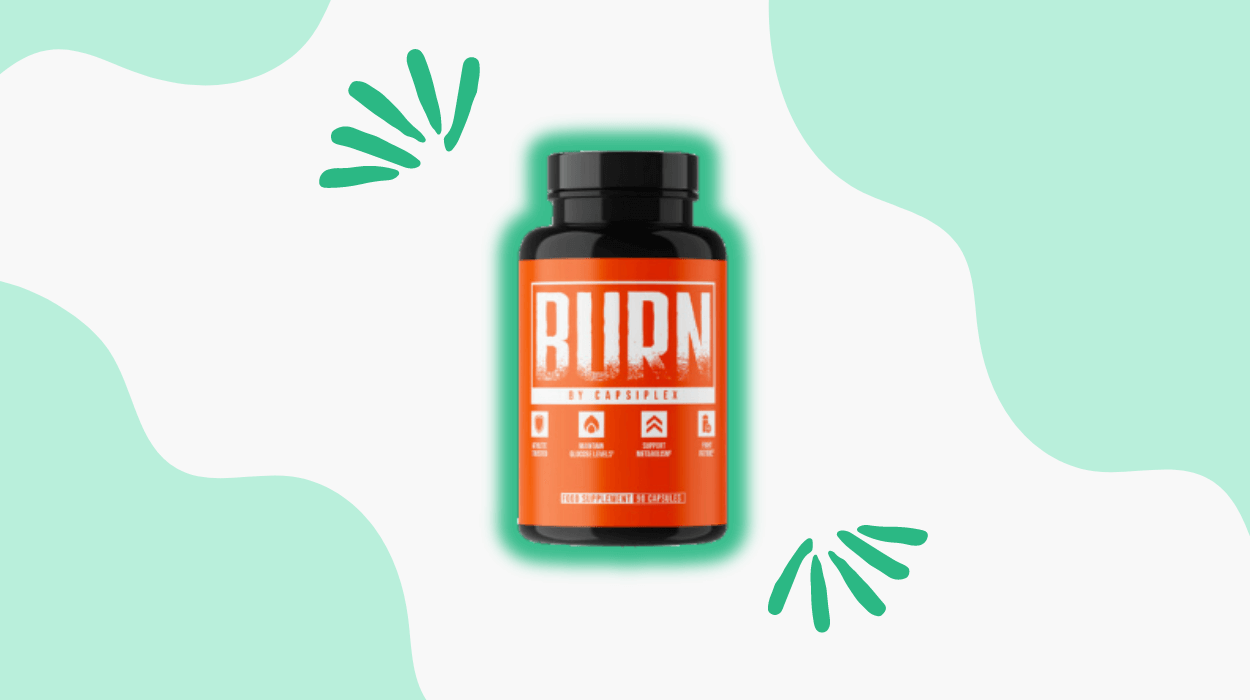

Losing body fat can be challenging for men, as they often encounter specific obstacles and misconceptions along the way.
Men work hard enough to put on rock-solid muscles. They often fear that performing cardio could make them lose their muscles. Dreaded with this, they ignore cardio sessions and focus on getting bigger. Along the way, they often derail from their diet routine, which makes them gain excess body fat.
However, there are some simple, evidence-based strategies that could effectively reduce body fat. Men could shed excess body fat by modifying their exercise and making simple changes in their diet to maintain a healthy weight.
Learn about these weight loss strategies to reduce body fat while exploring other factors that could contribute to excess body fat in men.

Adequate sleep is essential for managing a healthy weight. Numerous studies have shown a strong association between sleep and weight loss.
A 10-year study found that young women who slept less than 5 to 6 hours per night had a higher risk of obesity.
Another small study showed that getting one less hour of sleep in a night led to less fat loss in people following a low-calorie diet compared to a control group.
Sleep deprivation could contribute to changes in hunger hormones, an increased appetite, and a higher risk of obesity. It might decrease inspiration and energy levels, making it more difficult to perform any physical activity.
Sticking to a regular sleep schedule and forming a bedtime routine is important. Minimizing the use of electronics before bed could improve sleep quality. Most studies recommend at least 7 hours of sleep per night.
Healthy fats might support your weight loss journey. These fats could be found in olive oil, coconut oil, avocados, nuts, and seeds. They could provide essential nutrients and contribute to a satiety feeling, which may help prevent overeating.
You could try the Mediterranean diet, which contains healthy fats from nuts and olive oil. It may provide you with fiber, antioxidants, and glutathione that may provide positive effects for fat loss.
Strength training challenges muscles, stimulates muscle growth, and decreases body fat.
Building muscle mass may help burn fat, as muscle increases metabolism, helping you lose weight and burn more calories.
If you already engage in strength training, include compound lifts like the squat, overhead press, bent row, deadlift, and chest press. These exercises could engage multiple muscle groups simultaneously, making them more effective for burning calories and building strength.
Remember to pay attention to the number of sets and take rest intervals between them.
Eating more protein-rich foods may help decrease hunger, increase feelings of satiety, and lower calorie intake.
Studies have shown that a high-protein diet could increase the rate at which your body burns fat. Protein has a greater thermic effect than carbohydrates and fats, requiring more energy to metabolize and digest.
When you’re in a calorie deficit, you risk losing muscle mass and fat. However, consuming adequate protein could help preserve muscle mass during weight loss.
Swapping sugary drinks for healthier alternatives could support long-term fat loss and overall health. Sugar-sweetened beverages like soda and alcohol are high in calories and offer little nutritional value. Research has shown that consuming these drinks could increase the risk of excess belly fat.
A small study on 14 young men found that drinking 1 pint (568 mL) of water before a meal increased feelings of fullness and declined the number of calories consumed during the meal.
Non-sugary options such as water or unsweetened green tea may promote weight loss. Green tea contains caffeine and antioxidants that might increase fat-burning and metabolism.
Soluble fiber absorbs water and is obtained from plant foods like seeds, whole grains, fruits and vegetables, legumes, and nuts. This slow movement may help you feel satisfied and reduce the likelihood of overeating. Soluble and insoluble fibers may also help boost immunity by developing a gastrointestinal barrier. They may help reduce body weight and regulate blood glucose regulation.
Studies have shown that increasing your intake of high-fiber foods could help prevent weight gain. These foods may provide essential nutrients, making it easier to control your calorie intake.
Refined carbs, such as pastries, processed foods, white bread, and breakfast cereals, undergo processing that removes their germ and bran, resulting in a product that is low in fiber and nutrients. These refined carbs also tend to have a high glycemic index (GI), which could cause spikes in blood sugar levels, increasing hunger.
Follow a diet rich in whole grains that could lower body mass index (BMI), body weight, and waist circumference. Opt for wheat bread instead of white bread and whole grain pasta instead of regular, unhealthy pasta to maximize weight loss efforts.
Intermittent fasting is a diet strategy involving cycling between periods of eating and fasting.
It may promote a calorie deficit, as you restrict your eating window and consume fewer calories overall.
Intermittent fasting might help reduce body weight by up to 7% and decrease body fat by 12 pounds (5.5 kg) over 3-12 weeks.
A study showed that restricting eating to an 8-hour window each day, combined with resistance training, helped decrease fat and maintain muscle mass.
High-intensity interval training (HIIT) is an effective form of exercise that includes short bursts of rigorous activity with brief recovery periods. It may promote significant fat-burning and sustainable weight loss.
One review study found that performing HIIT thrice a week for 10 weeks significantly reduced waist and body fat mass. HIIT requires 40% less time than moderate-intensity continuous training, such as running or rowing.
A 2018 study found that HIIT has been shown to burn up to 30% more calories than other exercises, such as cycling or jogging, in the same amount of time. This makes it a time-efficient option for people looking to maximize their fat-burning potential.
Prebiotics are a type of fiber that could act as fuel for the good bacteria in the gut. They may help you feel fuller for extended periods, reducing the probability of overeating and snacking on unhealthy foods.
Some studies suggest that prebiotics may influence the metabolism of fats, potentially promoting fat burning and reducing fat storage in the body.
They could also enhance the absorption of nutrients from food and maintain a healthy digestive system by supporting a healthy gut environment. A healthier gut environment could help reduce inflammation associated with weight gain and obesity.
Cardio can be an effective form of physical activity that could target the lungs and heart. Research has shown that aerobic exercise could decrease waist, belly fat, and overall body fat.
A review of 15 studies found that increased aerobic exercise was associated with decreased belly fat in middle-aged people. Other studies have also shown that aerobic exercise could also increase muscle mass.
Engaging in 150–300 minutes of moderate to extreme exercise per week is recommended. This translates to roughly 20–40 minutes of cardio each day. There are simple ways to add cardio to your fat loss routine:
Coffee may boost the central nervous system, boosting your metabolism and energy. This increase in metabolism could lead to the breakdown of fatty acids and ultimately contribute to fat loss.
Caffeine may enhance fat burn during aerobic exercise, especially for people who are untrained or sedentary. Consuming coffee before your workout could help you burn more fat and maximize your cardio benefits.
Research suggests that increased coffee consumption is associated with a lower risk of obesity, particularly in men. An extensive review of 12 studies found that higher coffee intake was linked to a reduced risk of obesity.
Also Check:
Men’s average body fat percentage may fall within the spectrum of 18% to 24%. It is important to note that 3% body fat is necessary for proper bodily functions.
Athletes tend to have a body fat percentage ranging from 6% to 24%. These percentages may be influenced by age, genetics, and lifestyle choices.
The following table summarizes the different body fat percentage ranges for men:
| Body Fat Percentage Range | Description |
|---|---|
| below 6% | Extremely low |
| 6% to 12% | Very lean |
| 12% to 18% | Lean |
| 18% to 24% | Average |
| above 24% | Overweight |
For men, a healthy body fat percentage usually falls within the range of 8% to 24%. This range allows for optimal health and functionality.
Aiming to reduce 1-2 pounds per week gradually is generally recommended. This could be achieved by maintaining a caloric deficit of 500-1000 calories per day.
When setting specific fat loss goals, it is important to consider factors such as initial body fat percentage, age, and underlying health conditions. These factors may influence the rate at which body fat is lost.
Reducing excess body fat is essential for men due to its effect on health and well-being. Carrying excess weight might increase the risk of various health issues like:
On the other hand, having a lower body fat percentage is associated with:
Men could experience improved mobility, strength, and endurance by shedding fat and maintaining a lean physique. As they work on reducing body fat, they can build muscle mass, enhancing their physical performance and overall fitness level.
Here are four key factors that could affect body fat loss in men:
Men looking to reduce their body fat could benefit from including various strategies in their lifestyle. These may include strength training, following a high-protein diet, and practicing intermittent fasting.
Having a healthy sleep cycle, reducing the intake of sugary drinks, and adding prebiotics may also help reduce overall body fat in men.
Seeking guidance from a registered dietitian or personal trainer could provide them with personalized advice for effectively losing body fat.
Tyler Read earned an undergraduate academic degree from Sonoma State University, California and is a certified personal trainer (CPT) with NASM (National Academy of Sports Medicine). With over 16 years of experience, Tyler has trained clients both online and in-person.
He is passionate about helping others turn their love for fitness into a career. Tyler has worked with many local and commercial gyms before establishing his successful private personal training business, which he continues to operate.
